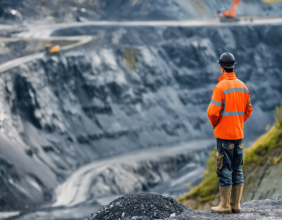Originally published in International Paper's Thinking Inside the Box whitepaper
In the last century alone, material changes to the average standard of living have dramatically improved human health and well-being worldwide. These changes come at a cost, and the looming issue—troubling scientists and researchers as far back as the 1960s —is the collective reliance on intensive greenhouse gas (GHG) producing processes to maintain a modern lifestyle. While a large part of our GHG impact comes from the sources of energy we use, our consumption of materials – the way we make and use products and food – are responsible for the remainder of emissions.1
Since 2018, the earth has consumed over half a trillion metric tons of materials, which is “nearly as much as the entire 20th century combined”.2 This challenge—what the Circle Economy Foundation refers to as the “circularity gap” — highlights the urgent need for the transition to a more circular economy to achieve broader societal and environmental goals.
The Circle Economy Foundation identifies four global systems that put the most pressure on key “planetary boundaries”, or measures of impacts to the earth’s environmental health for which the world currently exceeds its limits. The first global system is the food system, which is the largest driver of land-use change causing globally significant biodiversity loss and contributing to one-third of GHG emissions. The second system is built environment, which is responsible for 40% of global GHG emissions, one-quarter of land system change and contributes to water stress. The third is manufactured goods, which contribute primarily to pollution and climate change through heavy material- and energy-intensive industrial activities at the production level. The fourth global system, and no less important than the other three, is transportation and mobility, which account for 25% of GHG emissions globally, through high fossil fuel use, and drive land use change and biodiversity loss.3
Packaging is involved at every stage of these four global systems. Producers and recyclers of sustainable packaging such as International Paper can affect positive environmental change across each of these global systems. By using experience and expertise in the sustainable material space, as well as innovation in product design to increase recyclability and reusability, we are already working to replace single-use materials with sustainable, recyclable and adaptable packaging.
The Ellen MacArthur Foundation highlights how applying circular economy principles to the way we make and use products can not only create value, but also significantly reduce global emissions:4
• By eliminating waste and pollution, we reduce greenhouse gas emissions across the value chain
• By circulating products and materials, we retain their embodied energy
• By regenerating nature, we sequester carbon in soil and products
Through continuous innovation, sustainable infrastructure development and circular design, a future is possible in which high standards of living are maintained while minimizing environmental impact.
Download International Paper's white paper to learn more about the challenges associated with transitioning to a lower carbon economy and the sustainable advantages of fiber-based packaging.
About International Paper
International Paper (NYSE: IP) is a global producer of sustainable packaging, pulp and other fiber-based products, and one of the world's largest recyclers. Headquartered in Memphis, Tenn., we employ approximately 39,000 colleagues globally who are committed to creating what's next. We serve customers worldwide, with manufacturing operations in North America, Latin America, North Africa and Europe. Net sales for 2023 were $18.9 billion. Additional information can be found by visiting internationalpaper.com/.
About International Paper - EMEA
In Europe, Middle East & Africa (EMEA), International Paper focuses on the production and marketing of fiber-based packaging and specialty pulp, employing approximately 4,400 people. As a leading supplier of high-quality corrugated containers for a multitude of applications, we serve customers throughout the region from our network of two recycled containerboard mills and 23 box plants in France, Italy, Morocco, Portugal and Spain. Specialty pulp is made in Gdansk, Poland. Other products available from International Paper in the region include a variety of Kraft linerboard and other pulp products.
[1] Ellen MacArthur Foundation, Completing the picture: How the circular economy tackles climate change (2019) [link]
[2] Circle Economy Foundation, Circularity Gap Report 2024 (2024)
[3] Circle Economy Foundation – Circularity Gap Report 2023 (2023)
[4] Ellen MacArthur Foundation, Completing the picture: How the circular economy tackles climate change (2019) [link]





